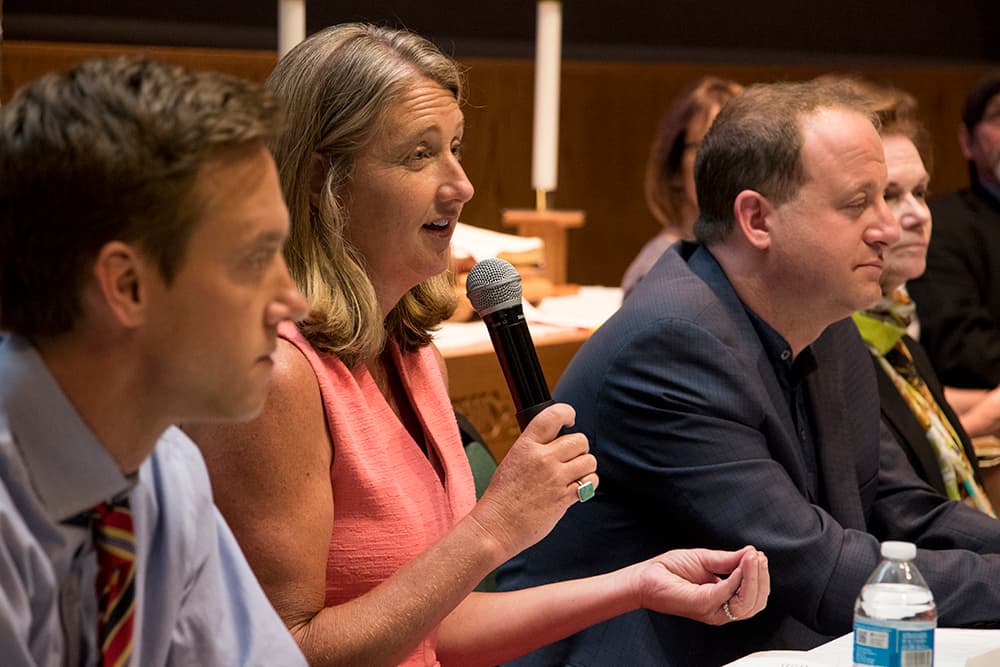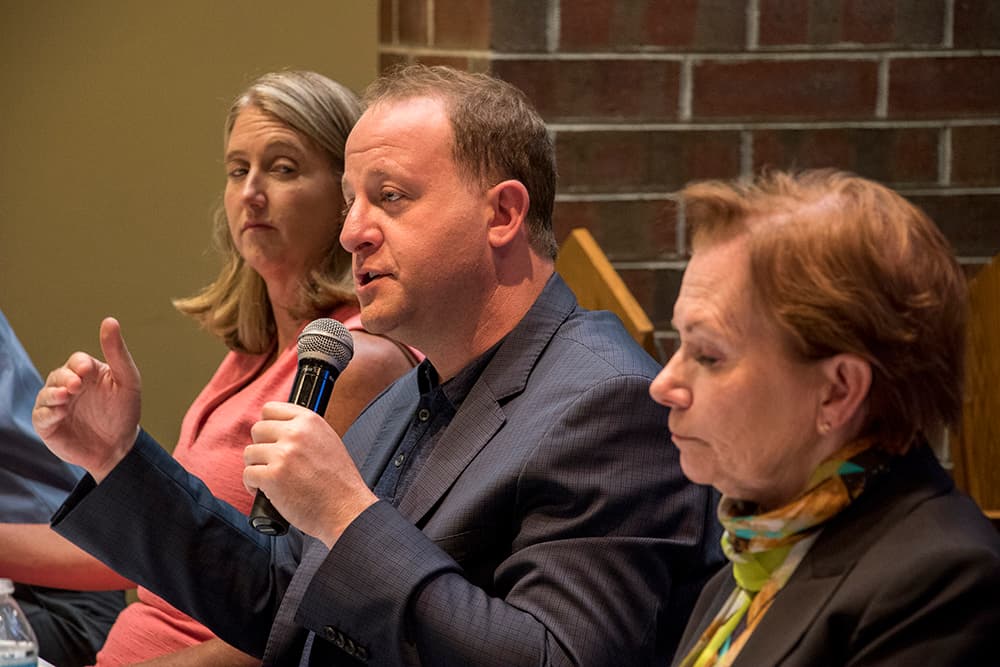We’re in the thick of primary season. Ballots have dropped and people are starting to return them, while political ads are bombarding your television.
And you’re about to get another chance to hear more from the candidates. Colorado’s four Democratic gubernatorial candidates will be at the University of Denver on June 18 for a debate co-hosted by Denver7 and the Denver Post. The debate will be 90 minutes, with the first 60 minutes airing on Denver7 from 6 p.m. to 7 p.m. and the remaining 30 minutes streaming at thedenverchannel.com.
Polls (the real ones) show U.S. Rep. Jared Polis leading the field, followed by Cary Kennedy and Mike Johnston, with Lt. Gov. Donna Lynne in last place. A poll released this week showed Polis favored by 34 points among likely primary voters, with Kennedy in second with 23 percent support, Colorado Politics reported. That's pretty close to the results from another poll released a week earlier.
By now, we’ve started learning more about some of the few ways these candidates differ.
Ian Silverii, executive director at ProgressNow Colorado, said education and gun safety seem to be the two topics where the leading candidates differ most. This debate could be a final shot at giving voters an opportunity to show how they would address these concerns, among others.
He said he's spoken with a lot of people who've narrowed their picks down to two of the top three candidates — in all possible combinations.
“All these candidates have the opportunity to make their closing arguments to the electorate,” Silverii said. He added: “There’s not a lot of differences between them. This debate is going to make a big difference because I think there’s a lot of undecided voters out there.”
During the 9News debate on June 4, the candidates said they believe the state should have a public healthcare option, but only Polis and Kennedy believe it should be universally available to everyone in the state as an alternative to private insurance.
"We need universal, affordable healthcare for everyone in our state," Kennedy said. "I'm proposing we offer a public healthcare insurance plan right alongside the private plans that are currently offered."

Johnston said during the debate his plan would include a public option that allows people to buy in anywhere in the state where people are contributing more than 10 percent of their income to insurance.
The candidates also aren't in agreement on bringing the Olympic Games to Denver. The proposal currently has the backing of Gov. John Hickenlooper and Denver Mayor Michael Hancock.
Johnston and Kennedy support the idea with conditions, while Polis and Lynne were opposed.
“These are fun things for millionaires and businesspeople, but it leaves the rest of us with the debts and the price tag,” Polis said during the debate. “It leaves a legacy of debt and underutilized infrastructure.”
Kennedy said the question should go to the voters and that she would not support the bid if taxpayers were on the hook for cost overruns. Johnston also said taxpayers need to be protected.
“My requirement would be it’s got to be a partnership that addresses the needs Colorado have right now around housing and infrastructure for us to make the investment,” Johnston said during the debate.
Somehow, negative advertising is still being brought up among Democratic circles — and the candidates themselves, with Polis and Johnston using a single negative, pro-Kennedy ad as fodder to question Kennedy’s leadership.
The ad provided some contrast between the three top candidates, though Polis and Johnston challenged the claims the ad made about their records on education. It also prompted a negative ad about the negative ad from a PAC backing Polis, Bold Colorado. Kennedy has made education the biggest focus of her campaign.
Beyond their differences, Silverii said debate viewers should pay close attention to how each candidate plans on serving the state for the next four years, and perhaps even more. He said it’s especially important, considering the state is currently in the middle of an economically prosperous era.
“When you’re looking at these candidates, you have to look at someone who is going to be able to solve the unique challenges in Colorado,” Silverii said, adding the successful candidate will be the best summation of the Colorado way of life. “Who can unite this state?”
Moderator Anne Trujillo says she'll try to raise new issues.
Monday's debate will be moderated by Trujillo, the Denver7 anchor, and John Frank of the Denver Post. Trujillo said the timing of this debate is critical, calling the debate the candidates', “last platform, the last opportunity to speak to voters in Colorado.”
“I think there’s an opportunity to have a national audience. It's a huge race," Trujillo said. She said the candidates can expect some questions on topics voters may not have heard of yet. "I think there's still some topics that they still haven’t addressed, I think that’s what we're trying to do, to get some answers that we don't really feel have been addressed."
While Trujillo said she didn't want to specify which topics she's expecting to explore (she doesn't want to give them a heads up), she said she wants the candidates — who at this point have met in forums and debates several times — to speak as frankly as possible.
"We might ask some questions that might be a little more personal that frankly, might make them a little uncomfortable," Trujillo said.
And if you've already got your mind made up, you can still watch and keep score.
While you're paying attention to the substantive talk, keep track of these candidates' favorite moves on your scorecard.
Johnston: How many times will he mention former President Barack Obama?
Kennedy: How many times will she mention open spaces and public lands at the ends of her answers?
Lynne: How many times will she say "bickering"?
Polis: How many times will he look directly into the camera / your eyes?
The first 60 minutes of the debate will air on channel 7 starting at 6 p.m., and the rest will be livestreamed on thedenverchannel.com, denverpost.com, and Denver7's Facebook page.












